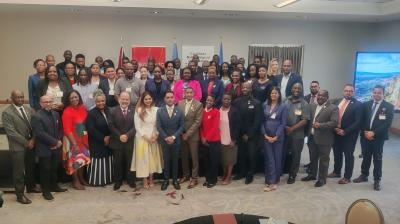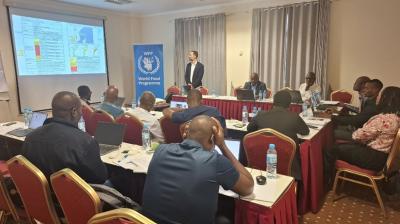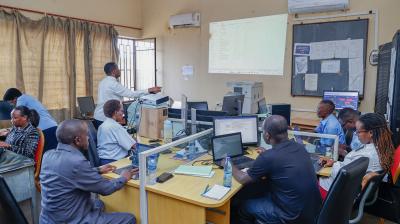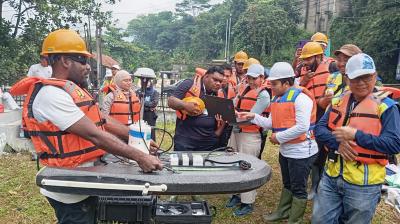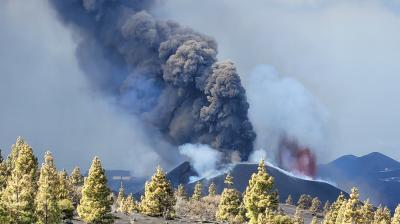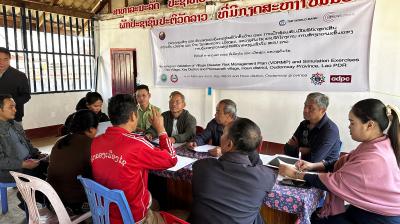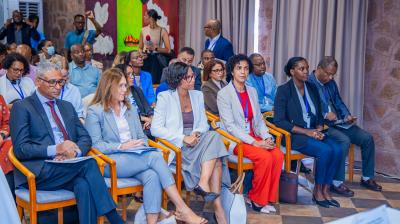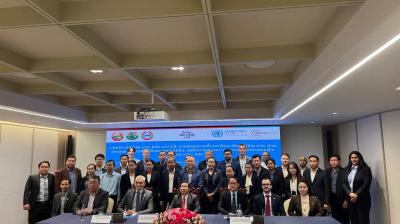Italian-African cooperation to strengthen early warnings in the Sahel
Italian research and meteorological institutions are joining forces with their African counterparts to improve forecasting capacity and strengthen early-warning systems for natural risk reduction. WMO and Aeronautica Militare contributed to an international meeting organized by the National Research Council of Italy (CNR) and the LaMMA Consortium on 14 October in Florence, Italy.
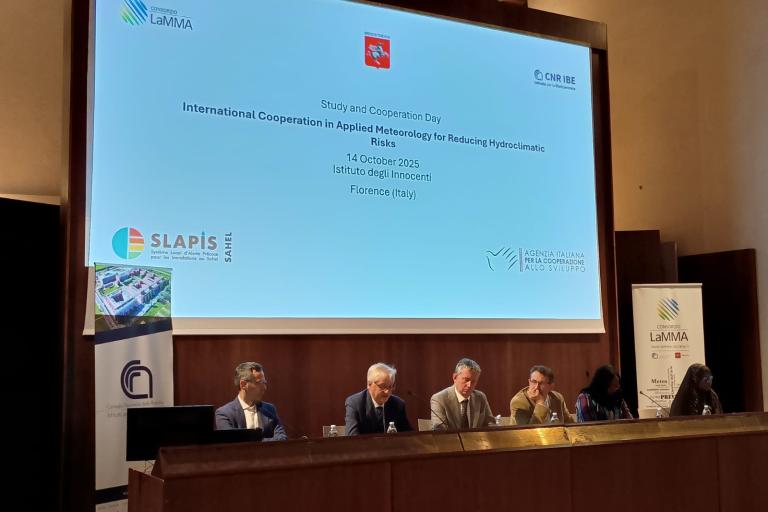
Climate change is amplifying the frequency and intensity of extreme weather events worldwide, with devastating effects on societies, infrastructures and economies. These impacts are particularly severe in the Sahel, where high social and economic vulnerability combines with exposure to floods, droughts, and heatwaves. In response, Italian research and meteorological institutions are joining forces with their African counterparts to improve forecasting capacity and strengthen early-warning systems for natural risk reduction.
Under the coordination of the National Research Council of Italy (CNR), through its Institute for BioEconomy (CNR-IBE), and the LaMMA Consortium — the operational meteorological service of the Tuscany Region — an international meeting titled “International Cooperation in Applied Meteorology for Reducing Hydroclimatic Risks” has been held in Florence, Italy, on 14 October 2025. The event brought together representatives of Italian and African meteorological services, researchers, international organizations, and cooperation agencies to share experiences, consolidate partnerships, and discuss future directions for operational forecasting in the region.
A common challenge at all latitudes
As highlighted by CNR, “Climate change and natural disasters represent a common challenge at all latitudes.” This shared challenge requires joint scientific action, capacity building, and knowledge exchange. For more than forty years, CNR has been engaged in research, technology transfer and training — through the World Meteorological Organization’s Regional Training Centre in Italy (WMO-RTC Italy) — in Africa promoting collaboration and co-development in meteorology, climatology, and agrometeorology
The Florence meeting showcases this long-standing cooperation, particularly through projects such as SLAPIS Sahel, funded by the Italian Agency for Development Cooperation (AICS) and implemented by the Politecnico di Torino, CNR-IBE, LaMMA, and the national meteorological services of Niger and Burkina Faso. The initiative focuses on improving operational meteorological forecasting chains and developing hydrometeorological early-warning services adapted to local contexts. It also invests in human capacity — training African forecasters, modellers, and IT specialists both in Italy and in their home countries — to ensure that advanced tools like the MOLOCH and WRF models can be effectively used for real-time weather prediction.
Beyond its scientific dimension, the event symbolizes a broader vision of international cooperation: building resilience together, across continents, through shared knowledge and trust. It includes the signing of new collaboration agreements between the Italian and African institutions, reaffirming the commitment to long-term partnerships that go beyond project cycles.
As LaMMA emphasizes, “operational meteorology and international cooperation go hand in hand when it comes to protecting lives and livelihoods.” By pooling expertise and resources, Italy, Niger and Burkina Faso are contributing to a global effort to make meteorological services more accurate, inclusive, and impactful.
At a time when climate extremes are increasing everywhere, initiatives like this one highlight how joint scientific collaboration can turn forecasting into foresight — and foresight into resilience.
All presentations are available here.
A capacity-building mission in Ouagadougou
Following the meeting in Florence, as part of the SLAPIS Sahel project, a capacity-building mission was carried out in Ouagadougou from 3 to 7 November 2025 to strengthen high-resolution Numerical Weather Prediction (NWP) capabilities in Burkina Faso. The initiative followed the strong interest expressed by both the Niger and Burkina Faso Meteorological Services in adopting MOLOCH, the convection-permitting operational model developed by the National Research Council of Italy (CNR).
- WMO Member:
- Italy
- Region:
- Region VI: Europe


